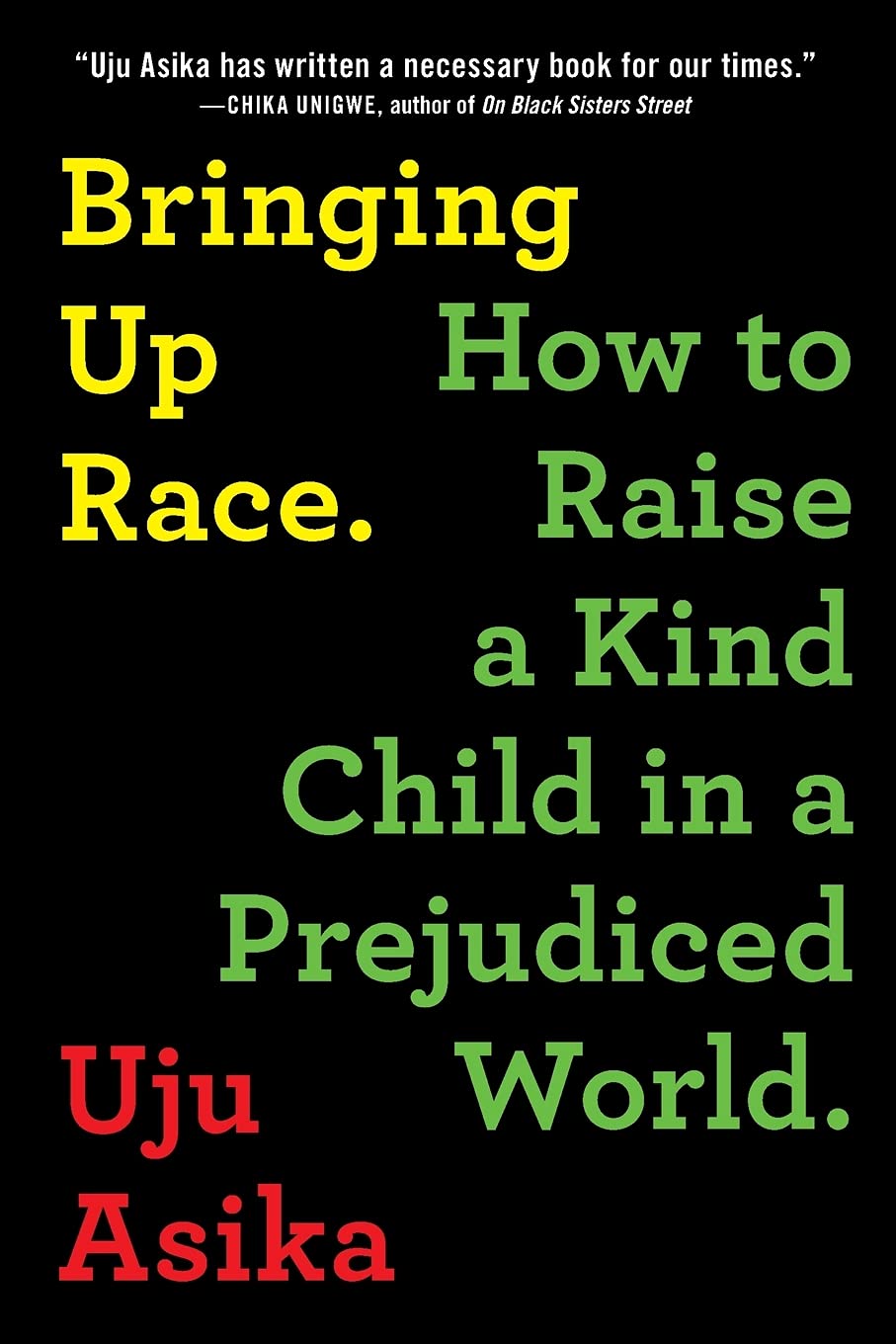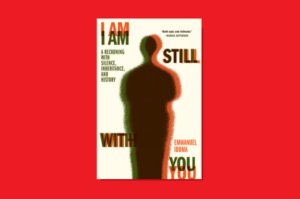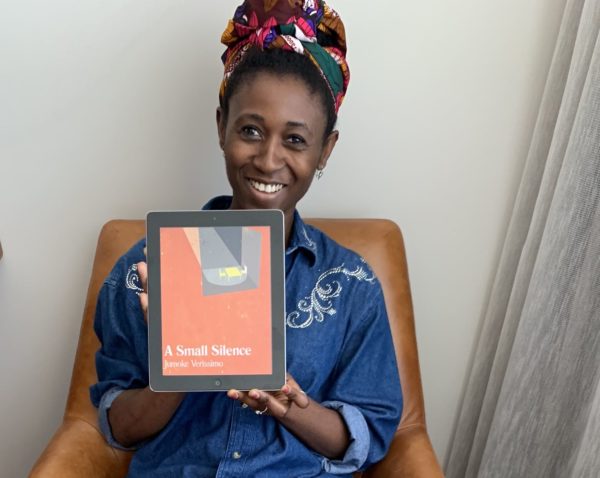
Uju Asika’s debut book Bringing Up Race: How to Raise a Kind Child in a Prejudiced World situates questions about race and racism within the family. The book offers practical advice on how parents can meet the moment of political and cultural urgency around the issue of race. It tells parents how to harness the natural curiosity in children to help them be more open-minded.
Asika is a British-Nigerian writer who built quite a following with her blog Babes About Town, where she writes about her life as a parent. In her book, she focuses on the intersection of race and child-rearing, offering advice on how to confront racism and its harmful effects in the household. Imagine all the questions you’ve asked about how to talk about race with your child, how to tackle difficult subjects like slavery, how to help children confront their privilege, what to do when your child is a victim of racist bullying, what to do when your child uses a racist slur, how to cultivate fierce self-love in a child of color, how to enrich your child’s reading with culturally diverse children’s books, what to do when you encounter harmful representations in your child’s book, and so on. Asika takes on these kinds of issues using well-researched approaches and good data. She relies on groundbreaking studies and authoritative sources, which she blends with stories from her own experience as a parent dealing with challenges relating to a child’s encounters with a racist world. The book is informative and easy to read, with thought-provoking observations, arguments, and tips.
I have great appreciation for a work that owns up to the ways that families contribute to the broader culture of injustice. I am reminded of Mona Eltahawy’s Seven Necessary Sins for Women and Girls and Chimamanda Adichie’s Dear Ijeawele. Asika does for anti-racism what these other writers did for feminism. It is easy to romanticize a binary where the family is the space of innocence and the outside world is the ideologically fraught space where all the bad stuff happens. But Asika shows how the hurtfulness, prejudices, and close-mindedness on the outside are often rooted in the privacy of domestic life. How children are brought up contributes to their capacity for empathy and inclusivity, as well as their complicity in reinforcing structures of inequality. So, while “babies are not born to hate,” the part of them that is open to and accepting of difference has to be nurtured. Asika writes:
It’s good to mix up a little more so that our naturally curious infants get to explore, discover, learn, and familiarize themselves with all types of people. Think of curiosity as a muscle. Let it grow, and we can raise children who are kinder, more open and more sensitive to other cultures…Let it wane however and it can shrink to apathy, fear, and ignorance.
In the course of the book, Asika shows that the mindset that ends up shaping our prejudices begin from the conversations or lack thereof that take place in the household. With this in mind, Asika assembles a toolkit to enable families rethink how they talk about race in their daily lives. For white families who want to step up to the challenge of raising “a kind child in a prejudiced world,” or a family of color needing to bring up a child to encounter a prejudiced world from a place of power, this book has tons of hands-on tips. Eighteen chapters with titles such as “How Kids See Color,” “Please, Don’t Touch My Hair, “Conversations About Race,” and “Raising Global Citizens” offer various strategies for shaping a child’s thinking and experiences around race.
Each chapter ends with a set of questions and answers because Asika is going for clear advice in response to complicated questions. I found this section of the book really helpful. After all the think-pieces and social media rants, what you need as a parent is a simple response to questions like: How do I approach the school when my child is the victim of a racist bully? Should I stop reading Dr. Seuss to my child because of his racist views? How do I get my child to love her brown skin? How do I talk about slavery to my children?
My worry about books like these is the danger of flattening the experience of racism in order to say something universal about race or provide a one-size-fit-all toolkit. Asika does her best to avoid this. The book is informed by a deep understanding that race, no matter how pervasive, is not the same for everyone. For black families in the US, having that first talk about what it means to live in a world that targets and hurts them for being black would be different for a white family having that first talk with their child about racism and white privilege. Talking about race in the US might be different from talking about race in the UK. Asika addresses the contextual nature of racism while offering tips that everyone can find useful.
For a non-fiction book dealing with pressing social issues, Bringing Up Race is a page-turner, and this speaks to Asika’s writing style, which is relatable and direct with a sprinkle of humor. This is a brilliant book, sparkling with insights on anti-racist parenting.
*******************
Buy Bringing Up Race: How to Raise a Kind Child in a Prejudiced World: Amazon – Bookshop








COMMENTS -
Reader Interactions